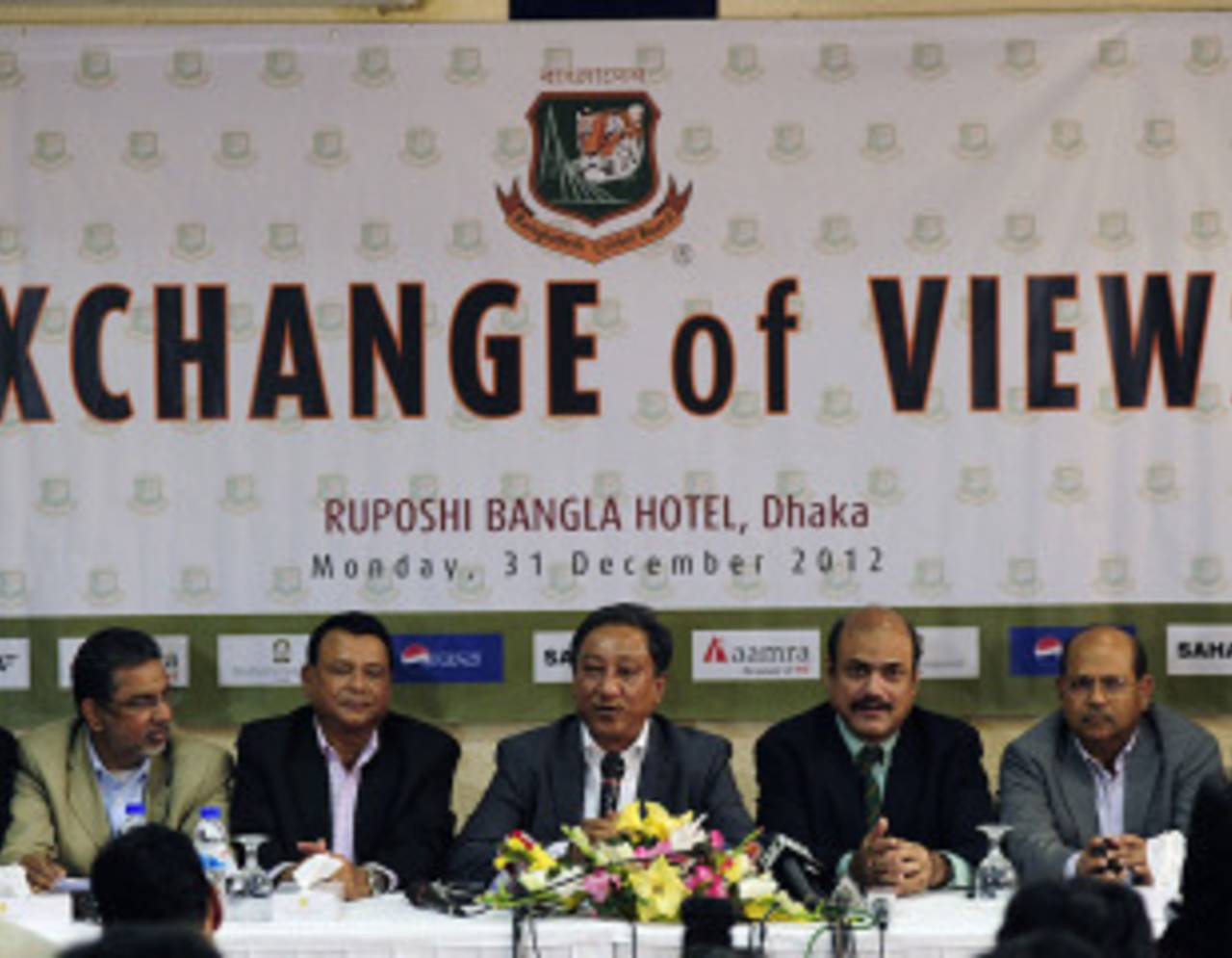The Bangladesh Premier League organisers were relieved when the tournament ended. Four weeks ago such relief was far away, after the PCB refused to release its players for the league. Despite regaining its foothold, and several local talents emerging on the field, the BPL faced problems off it.
Ahead of the opening game, the biggest worry was whether the franchises would be able to replace the Pakistani players who were withdrawn because of the
fall-out between the Pakistan board and the BCB. The player payments became the chief talking point when the BPL began, and to further complicate matters, there were complaints about sub-standard hotels in Khulna for some franchises. Poor crowd turnout in Khulna and Dhaka was another concern, and that was due to high ticket prices and the ticket-selling venues.
Player payments were always going to be under scrutiny after the long delays in the first season. This time, the issues spilled into public domain a few times during the competition. First, Owais Shah
complained of delays in fees, and Abdur Razzak
said he and his team-mates were playing without payment. Then came a moment when the BPL could have been thrown completely off kilter. Duronto Rajshahi's overseas players threatened not to play a match after not being paid for two-thirds of the tournament.
The first snag was set right a few days after Shah
admitted it was his mistake that the money didn't arrive in his account. It also showed the lack of coordination between the BPL governing council, which represented the BCB, the tournament's event management firm, and the franchises.
The second complaint, by Razzak, was not followed up by the BPL or the media, and nor was it addressed by the Rangpur franchise. However, when the Rajshahi foreigners almost didn't play against Khulna Royal Bengals, the BCB convinced them with a request not to sully the competition. And all of this was just for the first 25% of the payment.
The next deadline has already been extended to February 25, although it was first set for the day of the final. The trouble over payments in the next six months, the period that has been set to complete all player payments, will be the BPL's biggest challenge.
On the field, it was a better story this year. The Bangladeshi cricketers adapted to the demands of a Twenty20 competition and won mental battles. The manner in which some of the uncapped players dealt with fast bowling, albeit on slow wickets, showed how jumping up a level is becoming second nature for the average cricketer. A few scenes stood out: the dismissive hitting of Nazmul Hossain Milon, the six fifties by
Shamsur Rahman, but most of all the boldness of
Nasir Hossain was the biggest gain of the BPL.
Nasir's mannerisms looked arrogant to some, but it is this sort of confidence that Bangladeshi players are not known for. By switching stances to distract a fast bowler in the middle of a good spell, or rubbing his hands before taking a catch, the young allrounder showed how the heat of the battle or the weight of the big stage made him comfortable and not inhibited.
The confidence of
Shahriar Nafees and the return to form of
Mohammad Ashraful were also signs that Bangladesh cricket needs a tournament where the players face and play with overseas cricketers on a regular basis.
That it needed a Twenty20 tournament to bring better competition was perhaps not ideal. Other formats also need the attention reserved for the BPL, particularly one-day cricket, a format where the Bangladesh senior team has had improving results at home.
The other point of debate is whether franchises, some of which have been deemed "unprofessional" even by the likes of Khaled Mashud, the former Bangladesh captain, deserve such attention. The question is whether the BCB can resurrect a tournament that has so many flaws in its make-up.
The BCB has a lot more to do in this regard. Educating the franchises on how to manage a team should be high on the to-do list, but it will all depend on how fast the pay issues can be resolved. Otherwise, the same problems will surface the next time the BPL is held.
